
SHAWN HARRINGTON STARTED DOWN THE ROAD BEFORE HIM, his yellow safety vest reflecting any glints of sun the winter sky had to offer. The forlorn street, flanked by woods and a creek and devoid of any lights, had been repaved in the years since the little girl's death, but not much else had changed. Stillness enveloped the terrain, and Harrington grew haunted by how dark it was that early morning-how fearful the girl must have been before the fatal collision. Did she attempt to flag down help while traversing the tight shoulder? He wondered. Did she cower as cars whizzed by with poor headlights?
Pushing emotion aside, the then-35-year-old forensic engineer and accident reconstructionist from suburban Philadelphia began his customary walk, starting from what he calls the hot zone. Informed by a utility pole from the original police sketch, Harrington pinpointed the westbound-lane location where the girl's body was discovered. Working his way outward, he analyzed small circles of space while photographing everything relevant: photos of the fog line (the line between the lane of a road and the shoulder) where police found a tire impression and blood trail; of the bridge, where a wheel-well liner was retrieved; of the street leading to a small subdivision-the closest sign of life in these central North Carolina backlands 25 miles northwest of Fort Bragg.
During Harrington's hour march down the road on this January 2020 morning, all the police reports, witness statements, and photos he'd studied over recent days-evidence that had been presented to a jury 21 years ago in a murder trial-became visceral. The skid marks and car debris were long gone, but he searched for clues that might have been missed. From his 13 years scrutinizing the causes and effects of car crashes, he knew the key to many cases isn't the bright shiny object, but the little marking in the roadway three yards to the right.
This story is from the {{IssueName}} edition of {{MagazineName}}.
Start your 7-day Magzter GOLD free trial to access thousands of curated premium stories, and 9,000+ magazines and newspapers.
Already a subscriber ? Sign In
This story is from the {{IssueName}} edition of {{MagazineName}}.
Start your 7-day Magzter GOLD free trial to access thousands of curated premium stories, and 9,000+ magazines and newspapers.
Already a subscriber? Sign In
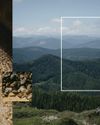
ONE OF THE 'GREATEST THREATS' TO THE PACIFIC NORTHWEST ISN'T WHAT YOU THINK.
EXPERTS ARE PREPARING THE REGION AGAINST THE THREAT OF DANGEROUS VOLCANIC MUDFLOWS, KNOWN AS LAHARS, WHICH COULD INUNDATE THE COMMUNITIES SURROUNDING MT. RAINIER IN AS LITTLE AS 30 MINUTES.
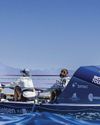
THE WORLD'S TOUGHEST ROW
They rowed 3,000 miles across the Atlantic, battling unpredictable weather, chaotic seas, and finicky equipment. But what they discovered gave them profound new insights into the power of the ocean.
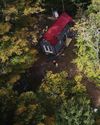
HOW TO DIY OFF-GRID SOLAR
SPEND THE TIME UP FRONT AND PLAN IT CAREFULLY TO AVOID DISAPPOINTMENT

Are We on the Verge of an ARMS RACE in SPACE?
RUMORS OF A RUSSIAN SPACE NUKE, ALONG WITH OTHER SATELLITE-TARGETING WEAPONS, HAVE MADE GEOPOLITICAL TENSIONS EXTEND INTO ORBIT.

Fresh Fingerprints on an Ancient Statue
A CLAY FIGURINE HAS SPENT MILLENNIA incomplete, waiting at the bottom of a lake for its long-dead craftsman to finish the Iron Age-era statuette.

Quantum Entanglement in Our Brains
IT HAS LONG BEEN ARGUED THAT THE human brain is similar to a computer. But in reality, that's selling the brain pretty short.

The Tools of Copernicus
WAY BACK IN 1508, WITH ONLY LIMited tools at his disposal, Nicolaus Copernicus developed a celestial model of a heliocentric planetary system, which he described in hist landmark work De revolutionibus orbium coelestium. It was a complete overhaul of our conception of the universe-one that, unfortunately, earned him the ire of the Catholic church for decades after his death-and forever changed the way we look at the stars.
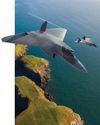
Building a Sixth-Generation Bomber Raptor
THE GLOBAL COMBAT AIR Programme (GCAP)-a project by the U.K., Italy, and Japan to develop a sixth-generation stealth fighter-has been busy at the drawing board reshaping its vision of the future of air warfare. And judging by the new concept model unveiled at this year's Farnborough air show, that future has big triangular wings.
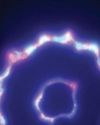
The Electroweak Force of the Early Universe
TODAY, THE UNIVERSE AS WE KNOW IT IS governed by four fundamental forces: the strong nuclear force, the weak nuclear force, electromagnetism, and gravity.
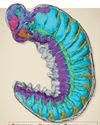
This Ancient Fossil With a Brain and Guts
WE KNOW WHAT FOSSILS LOOK like. For example, typical dinosaur fossils are bones turned to stone and preserved from the passage of time, located, if we're particularly lucky, in large collections that can be reassembled to represent the beast they used to prop up in their entirety.